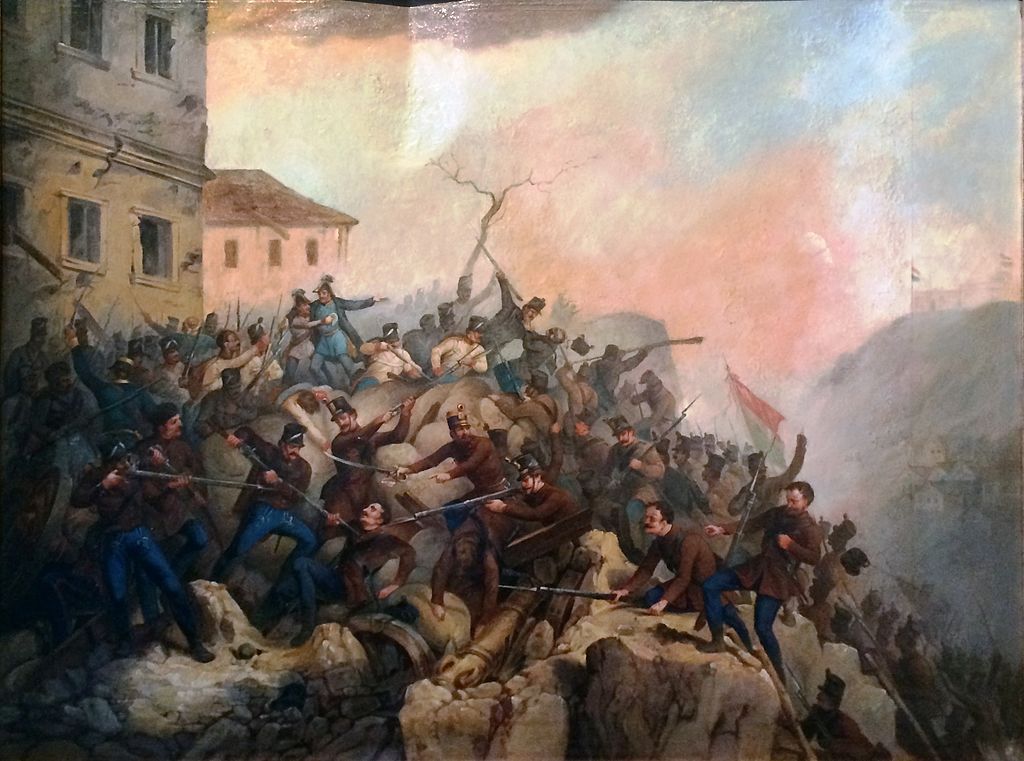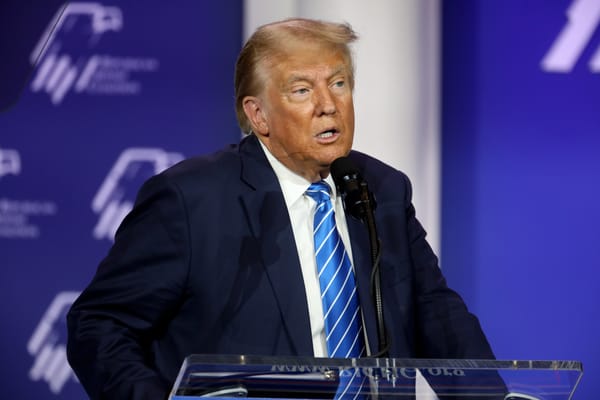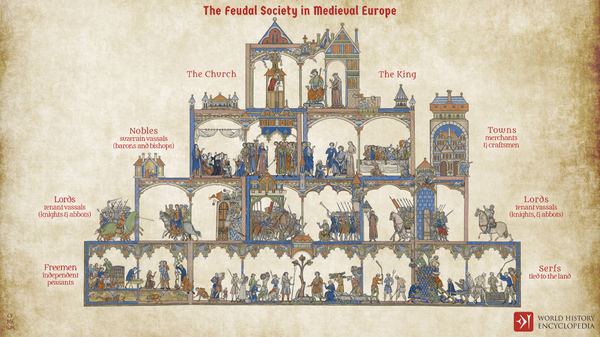Sanctions and Russia's Brutal War of Conquest in Ukraine

What is currently occurring in Ukraine is beyond barbaric and is in no way sustainable by the Russian government on any level. Period. While the invasion of Ukraine was not sustainable before the massive, multilateral sanctioning campaign that has since occurred, it is even less so today as the Russian Ruble continues to lose value, the Russian society and economy continues to disintegrate before the world, and the assets of its government, richest citizens and companies sit frozen in once-friendly institutions and nations around the globe.
Sanctions are, to be sure, often painful and protracted ways of pressuring and stifling a nation, and we as a world must look and work towards the end of their use or application. The frivolous use of them is both inhumane as well as largely ineffective. To use them instead of and before traditional diplomatic entreaties or avenues, or as a perennial cudgel against those nations a polity might find disagreeable, generally serves little positive purpose.
That all obviously remains my position regarding sanctions. Yet this particular occurrence is dissimilar to others that I have written about previously. Russia is not Iran, Cuba or Venezuela, and how Russia has acted and continues to act is simply unlike any of those other nations. Watching this unfold in real-time, I did not champion sanctions to remedy the budding and still unfurling circumstances – far from it in fact.
As Russia was first was amassing troops upon the borders of Ukraine, I believed that Putin’s plan was to use them as leverage to negotiate the end of the sanctions first imposed in 2014, and added to variously in the years since. Putin was posturing his military in such a way that was threatening, but not yet internationally illegal either. Those actions did, however, bring nations from across the world to places like Geneva for international diplomatic sessions with Russia that, I thought, could potentially produce some positive innovation or innovations for Russia, and perhaps even a pathway away from something like this very conflict going forward into the future. Yet Russia badly misplayed its hand, went far beyond those diplomatic ploys and theatrics, and has since thrown themselves and their neighbor Ukraine into an absolute quagmire that continues to threaten to engulf the entire world.
The Russian government and military have, to put it bluntly, undertaken a full-scale invasion of another, sovereign and internationally recognized nation, and currently continue their slow, disorganized and disheartening march around Ukraine, who do not have a perfect society worked out yet to be sure. Yet, on the other hand, Russia isn’t the nation to fix it for them in this, or any other regard either. The Russian military’s lack of success should be credited in equal parts to Russian technical and intelligence incompetence, and political and practical misjudgments, the world’s largely-collective response, as well as to Ukrainian ambition and drive. Things have not gone as planned for Putin and his associates, and the global reaction has been far more unified and severe than any could have expected.
Frighteningly powerful and unprecedently multilateral sanctions have been levied against Russia, its government and government officials, the breakaway, unrecognized Ukrainian parcels of land which now go by Luhansk and Donetsk, as well as the historically difficult to sanction oligarchs of Russia, and continue to gain in strength as well. The whole of Russian society has been horrifyingly affected as a result of both government and private rebukes. Russia, however, is not the only nation to bear the burdens of devastating sanction regimes.
No matter one’s thoughts regarding traditional international pariahs of the “West” such as Iran, Cuba or Venezuela, the sanction regimes placed upon those nations were created for infractions of international decorum far less severe than those which Russian President Vladimir Putin is allegedly guilty of. Nor can it be said that human rights are some consistent trigger for sanctions either, given that other nations that engage in various abhorrent and grotesque domestic policies, as well as years-long, and sometimes decades-long, conflicts, such as Israel, Saudi Arabia, the United Arab Emirates, and Vietnam, are not only not sanctioned by the United States or their European allies, but have relatively positive relationships with them despite their behaviours. Why not, then, attempt to cultivate actual, positive relationships with all of the non-outwardly combative nations instead of maintaining the selective sanction regime?
Misleading precedent
The previous sanctions against Russia, which began after their 2014 invasion and illegal occupation of Crimea, were simply poorly played and ineffective. Whether because of the relative mildness of them, or because of the lack of unity among the international community, sanctions were not effective in their aim. Nor did they leave Russian leadership with the impression, for whatever reason, that a full-throated, multilateral sanction regime could pose a real threat worth considering for.
The Russians did do their best to imagine how much worse things could be made with further, strengthened sanctions, yet it was surely unthinkable that so many nations would run counter to their own, personal and domestic interests in order to work against Russia. In addition, Vladimir Putin’s regime has been running a campaign of political interference upon the EU and Western nations for at least a decade, if not longer, without any serious repercussions. With developments such as Brexit in the UK, the Donald Trump years in the United States, the rise of far-right parties, actors and actresses across nations like France, Italy, Germany, Poland and Hungary, one might imagine that the Russian President considered that he had much of Europe and the world in his pocket to varying degrees.
Putin was, of course, mistaken. And this mistake will have consequences within and far beyond Russia’s borders. In light of all this, we must ask, in the first instance, just what ought to be considered a “successful sanction.”
Sanctions are, when not hanging as a warning of deterrence against nations and societies, supposed to either stop or inhibit some specific behaviour or activity in the event that they are administered by a polity or polities against a country or nation. If this is not accomplished by the direct coercive effects of the sanctions—such as by making it impossible to continue funding a particular war effort—then they are supposed to create enough domestic and political pressure to stop the activity by inflicting human suffering across the entire sanctioned society.
The sanctions that have now been applied, and continue still being unsheathed from the many holsters of nations the world over are sharp, and far more devastating than Russia ever imagined would be levied upon them. There is simply no insulating a nation as massive and interdependant as Russia is from the impact of such a massive united cudgel being wielded against them. That private capital has also retreated from that nation surely couldn’t have been accounted for either in the leadup to this conflict. That Russia’s allies are all conspicuously quiet too, as that nation has been plunged into nearly unprecedented levels of diplomatic, economic and technological isolation, can be read in multiple ways, few that are positive for Russia.
These current, robust and ever-expanding sanctions are, in terms of historical international relations, precedents and standards, more diplomatically justifiable than sanctions of nations like Iran, Venezuela or Cuba for example, because of the narrowness of their focus on Russia’s actions and the extremity of the actions in question.
Yet like the barricade or siege of which the sanction sought to replace all those many years ago, in part due to the unbelievable suffering and hardship such procedures created for innocents, the sanction cannot rightly or completely escape the taint that comes with inflicting death and suffering on the innocent masses because of the policies of their government. Furthermore, while the siege or barricade is a physical act, like traditional conflict, which requires people and resources to maintain, the sanction can last for however long it is felt to have to last—as Cubans know all too well.
While practically this means that sanctions can be applied and maintained for longer and with greater ease than their predecessors, their short-term consequences strike hard, suddenly and decisively at all parts and portions of a society. The freezing of imported resources and capital, the complete end of diplomatic and economic agreements, freedom of movement, and what all of that means for the exports of that nation, all causes great and massive damage to the aims and functional capacity of the society and its economy in the immediate. As the barricade and siege, the sanctions hit hard their target or targets, and leave them grasping – as a society and as individuals – at internal resources and their sparse allies alike during this initial period. Yet as sanctions sit as yolks upon the necks of nations as a whole for longer and longer, something curious occurs in the targeted nation as well.
Nations and their people adapt to sanctions over time. This is true and visible across the world in nations like Cuba and Iran. Yet adapting in this instance is not necessarily overcoming. While nations and those people who can survive and carry on through a full bore, long term sanction regime find new ways to function and maneuver in the circumstances they find themselves perennially in over time, the consequences of the sanctions that isolate and deteriorate their nations and societies do not disappear either.
Thin justification
While sanctions in response to aggressive military action may seem both justified and more peaceful than responding in kind, in many ways they are akin to specifically targeting civilians in response to military action. While we cannot, in the current situation, expect to dispense with sanctions entirely, we ought not to countenance their frivolous use. And any permanent adoption of sanctions against another nation, no matter the nation, ought to be viewed for what it is: a failure of foreign policy.
As I have noted elsewhere, even as justifiable as sanctions are under the current circumstances, they alone certainly cannot produce the end of this conflict, or save the many millions of innocent lives caught up in it.
Practically speaking, Russia, as it is currently constituted, cannot last in its current state much longer, whether it be economically or diplomatically. Militarily speaking, the situation is a bit more complicated of course, but even that is not practically sustainable, beneficial or improvable on any longer-term scale, or in any greater sense; while the state might have money to burn for some time, the cost of getting certain items has just recently skyrocketed while the value of their money has plummeted.
While on the domestic front it is surely true that that nation could just contract economically, becoming more dependant upon itself and its minor cadre of satellites, protectorates, allies, and friends like China and India to varying degrees, complications persist. The consequences of this path, of disregarding economic power and procedures, for the people of the already decrepit, suffering and impoverished nation of Russia, present distinct domestic problems for President Vladimir Putin and his cabal to simultaneously navigate as they try not to lose this war outright.
Yet while these issues are ones of an existential nature for any nation usually, their consequences extend still further, into the military and the current Ukrainian campaign itself. Right now, attempting to consolidate the gains of this Ukrainian campaign is a completely practical move for the Russian military for a number of reasons. Aside from the fact that the military and greater society of Ukraine has put up such wonderful resistance against that invading nation’s armed forces-–something that Russia did not plan for in any sense—global sanctions are likely squeezing an already financially tight Russian military operation even tighter.
To continue this course with such united economic and diplomatic opposition against you, for a prize of no positive, practical economic value, which is brutalizing not only the people of Ukraine, but the reputation of the Russian nation, is not a sustainable course, no matter how long the craft or vehicle is piloted on that course; eventually things will begin to disintegrate away in one way or another.
Meanwhile, China and India will only be able to do so much to help Russia without drawing the greater ire and rebuke of those united nations attempting to pressure Russia out of its current actions and behaviours; should each nation be confronted with similar economic realities as Russia has had to come to terms with since its invasion of Ukraine, there are simply greater diplomatic, economic and practical incentives for cooperating with the world as opposed to President Vladimir Putin and Russia. For the Russian President, his government, its military and the entire nation, economy and society too, prospects, with and without greater assistance from allies, are even less promising moving forward than they’ve been previously.
But these current sanctions—and perhaps still heavier cudgels still—no matter how barbarous, lethal, or problematic in certain longer-term senses they prove to be, will continue for the foreseeable future, until this conflict ceases, and perhaps even beyond. The US and its allies, however, must put forward sanction “offramps” for Russia, to encourage good faith, bilateral negotiations and agreement with Ukraine. In the ideal case, this will also lead to greater, multilateral negotiations with the wider global community to discourage the use of so severe a sanction regime again in our lifetime.
There is, to be sure, no good that will ever come from “forever sanctions,” either from a humanitarian perspective or simply from a conflict resolution standpoint.
As word continues to spread of both new atrocities in this conflict, as well as new failures by the invading nation and developments regarding a diplomatic end to this barbarism and horror, there is no definite end in sight for what is happening in both the Ukraine, as well as in Russia, although discussions continue to take place between the two nations. The devastation and humanitarian crisis created and perpetuated by the Russian military and its allies on the orders of President Vladimir Putin across Ukraine is easily discernible at this still relatively young stage of the ordeal, while that devastation wrought by the global reaction to this outrage will likely lie hidden behind the Russian cloak for the time being.
At that point, while the world is still looking to care and handle those poor souls of Palestine, Ukraine and the Kurdish within and out of Kurdistan, amongst so many other peoples around the world, they will have to also turn their attention towards Russia and its people once again. As Keynes recommended regarding Germany as the First World War was being winded down at Versailles, the world in the near future will also have to work to help the people, society and state of Russia rebuild itself, and will have to do so without prejudice or disgust if relations are to be mended and the world reconciled with one another.
There is simply no circumstance—whether presently or historically— in the final analysis, that can really justify the destructive domination of an entire nation or society of peoples by either economic or military subjugation, no matter the timbre of the society and people themselves. Their punishment is not fair, right, or, as has been said, truly justifiable in any moral way, no matter the qualifications, but it is the current course that the nations of the world have endeavored upon to stop Russia and to warn others against similar actions in the future.
These great, global sanctions must be inextricably linked to the actions that are occurring in Ukraine, and must have obvious, well documented and properly articulated off-ramps that not only provide Russia with a means of diminishing the long term effects of the massive sanction regime upon them, but also diminish the leverage that Moscow and its sympathizers have to state that the US and other Western powers are attempting to existentially wound Russia, push that nation towards regime change, and doom its people in this current circumstance.
Perpetual punishment of the masses of belligerent or even openly caustic nations should never be the goal. As we look for off-ramps for Russia and the world, we ought also to consider lifting the “forever sanctions” of yesteryear. Bringing those nations back into the international community of nations properly will at once, disempower rogue agents like Moscow while demonstrating in the same instant that the international community must be represented by all nations and peoples, and that by endeavoring to work alongside other nations, solutions can be mutually and multilaterally developed for the good of all.
Featured Image is The Siege of Budapest, by Josef Anton Strassgschwandtner




